If you are willing to compromise with the truth, don’t become a journalist.
Interview with SEEMO Member Goran Mihajlovski , Editor in Chief WWW.SDK.MK, Skopje, North Macedonia (September 2020)
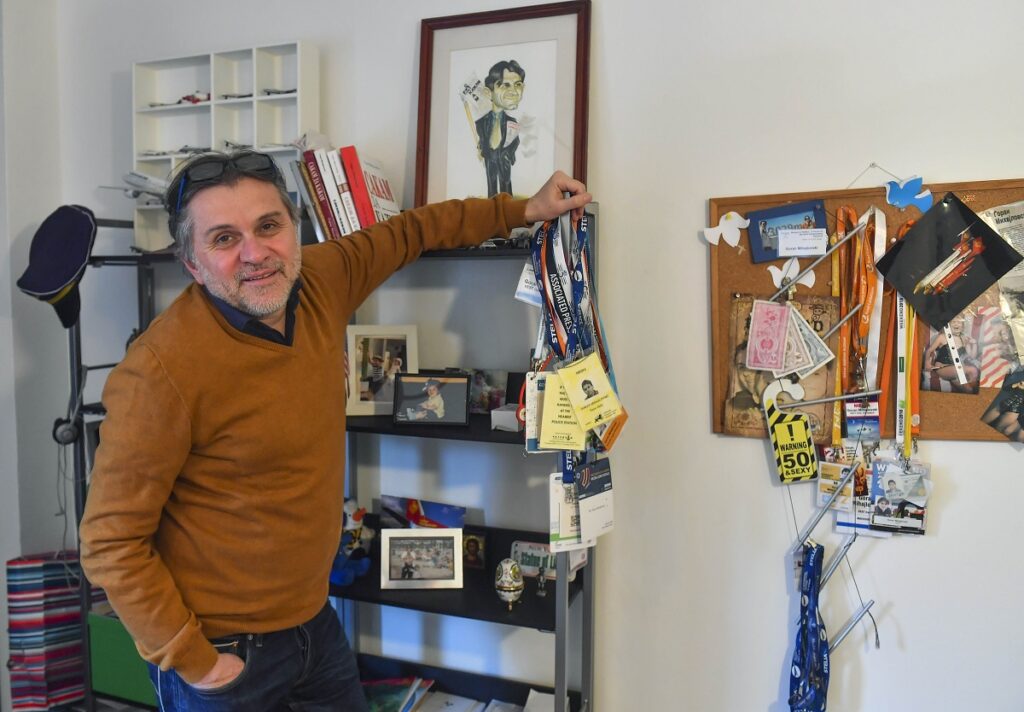
Tell us a little about yourself, your family, including how you got started as a journalist?
– I’m married to an architect and we have two teenagers at home, a daughter and a son. I have been a journalist almost my whole life, ever since I finished high school. As a young journalist student, in the 1980s I worked as a reporter while serving in the Yugoslav Army, for the Army’s magazine “Vojnik” in Belgrade. When I was doing my University studies I was freelancing at the student’s weekly magazine “Studenski zbor”. I am in “serious” journalism since I got my first salary in “Vecer” daily newspaper in 1989.
What is the difference between journalism when you started and today?
– There shouldn’t be any difference between journalism then and now as long as you follow the principles of the profession. The only difference is in the technical tools. In the past, we relied on landline phones, telegraphs, stenographs, later on we got the fax machines, pagers and now we are more dependent on mobile phones and the Internet. It’s easier to run journalism with the new technological tools because it gives us a lot of advantages when it comes to sources and accessing archives. But, at the same time, with so much information from so many sources the risk for manipulation is bigger, so you have to be more careful what you read and always check if that is true.
You met also many important persons. Maybe if you can present some of them.
– I started as a journalist in a political section at the time when Yugoslavia was falling apart, during the wars in the ex-Yugoslav republics when Republic of Macedonia was fighting for independence and international recognition. The most notable person that I have worked with is Kiro Gligorov, the first President of the independent Republic of Macedonia. But, at that time during the famous peace conferences for Yugoslavia around Europe, including the Macedonian city of Ohrid, I had the chance to meet and take statements from Franjo Tudjman (President of Croatia), Slobodan Milosevic (President of Serbia), Alija Izetbegovic (President of Bosnia and Herzegovina)… Later on, in 1999 when there was softening of the Macedonian relations with Greece, I interviewed George Papandreou in Athens when he was the Minister of Foreign Affairs. Several times I’ve had useful meetings and off-the record briefings with the long-term UN mediator in the Macedonian-Greek negotiations over the name issue Mathew Nimetz.
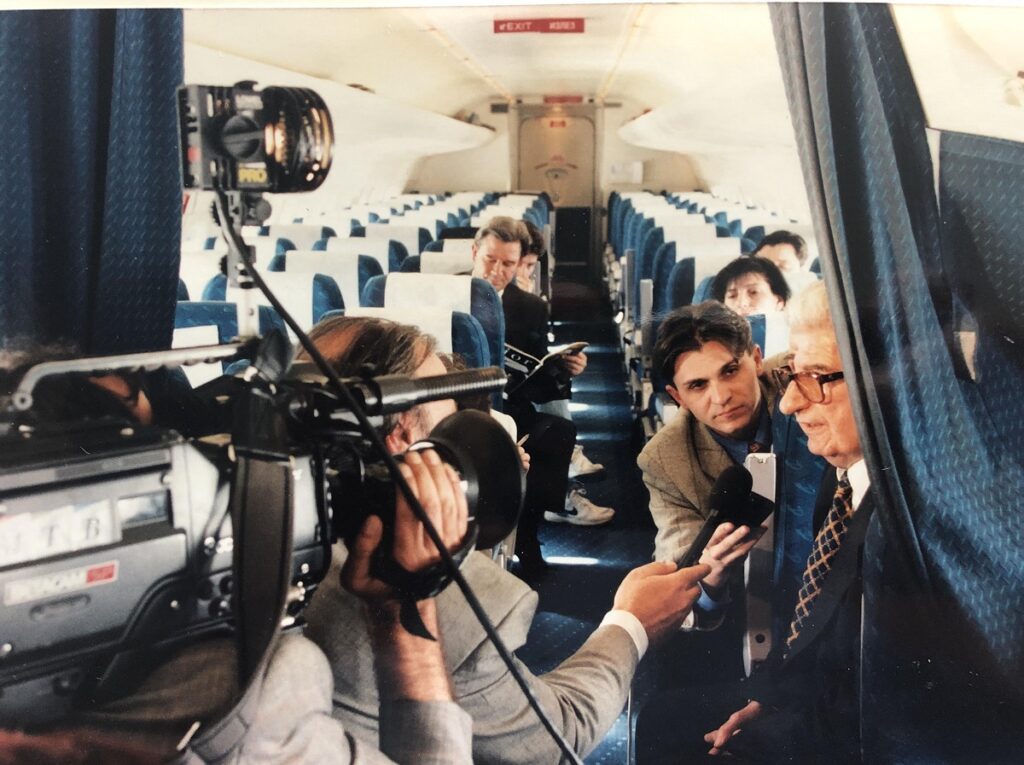
What was your biggest challenge as journalist?
– The biggest challenge was to fight huge personal pressure and censorship, while being determined to keep my voice and to maintain integrity both personal and of the journalistic profession. And most importantly, to keep my name clean.
How hard it was to stay always professional?
– If you are a journalist at heart, if you are determined to live from journalism, if the job makes you happy, if you don’t mind working without defined working hours and, last but not least, if you stick to the principles and standards, it’s not hard to stay a professional journalist.
–
Did you make some mistakes? Would you do something today different?
– I work in online journalism, in the hurry of being first, of being exclusive I might have made some mistakes, but none were big enough to take a toll on my career. If you stand by the principles of journalism, if you seek confirmation from a reliable source, the risk of making a mistake is minimal. It is always better, even if you are sure of it, not to rush with the publishing until you have confirmed the credibility of the news.
Your work is connected to the South East Europe Media Organisation (SEEMO). How important is SEEMO for you?
– SEEMO has a great role in securing much needed regional networking of the journalists and media outlets. It creates close contacts as well as serving as a watchdog for breach of press freedoms. In my opinion, such support and role are crucial considering the circumstances and the challenges we face as journalists on daily level.
How you see the role of online media today?
– The role of online media is the same as any other media today and always: it is only professional newsrooms that maintain the constant struggle to keep the integrity of journalism with credible and fact-checked reporting. Media is not only there to inform properly, but to give voice to all citizens and correct malpractices in the society.
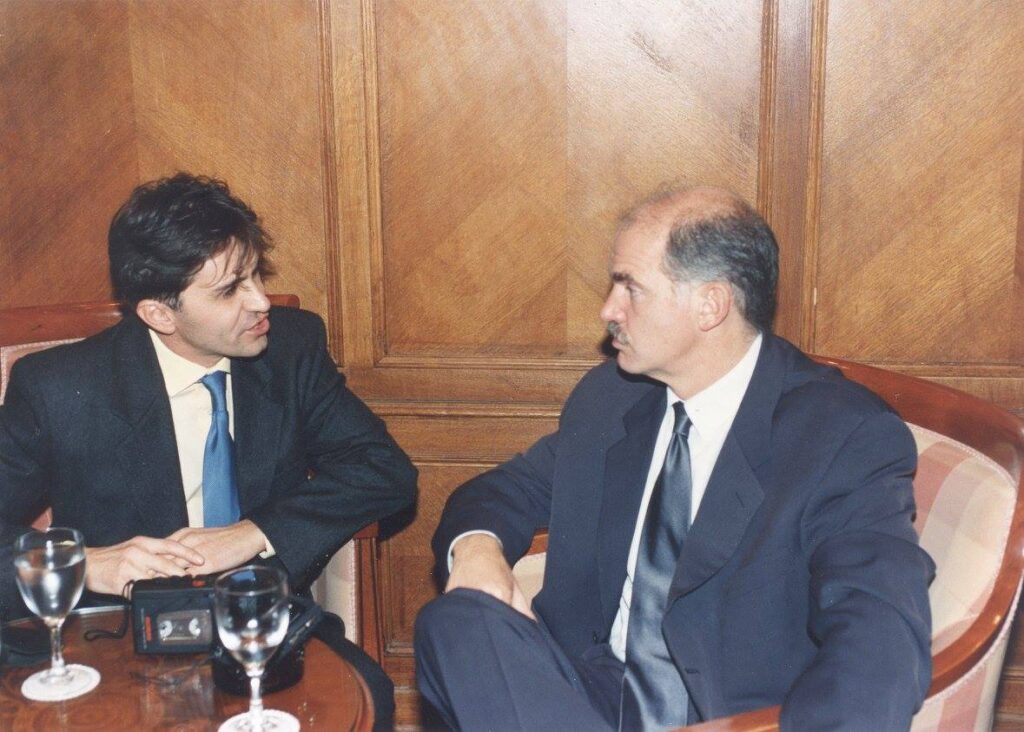
You are working for SDK. MK digital newsroom. Can you please present us your media?
– SDK.MK is a digital newsroom that sticks to highest standards of professional journalism. It consists of eight journalists in the Skopje headquarters, along with an original local correspondent network of eight reporters covering 8 regions in the country. We also have two professional photo-reporters. What makes us different from other online media outlets in North Macedonia is that we don’t bait our readers with clickbait titles, and yet we are among those with the highest engagement rate. We stick by the rule: We don’t copy, we doublecheck and we don’t waste our readers’ time with nonsense.
You are also founder of Vest Daily, the biggest daily newspaper in North Macedonia. You started with Vest in the year 2000. Was it hard to start a new newspaper?
– Every beginning is hard and brings unforeseen situations. However, I knew exactly the sort of newspaper I wanted to create. My first investor, the Macedonian company “Fershped”, trusted me when I told them that we would quickly become the newspaper with the highest circulation and most importantly they didn’t involve themselves in my editorial policy. I chose a team of young, free-minded journalists, who accepted my philosophy of being different from the others by revealing more than the ordinary news. And we succeeded.
Tell us a little more about your time in Vest and why you ended the cooperation in the year 2015.
– I founded Vest in 2000 with a team of experienced editors as well as very young reporters and by 2005 it became the best-selling newspaper in the country. It was highly regarded by the public as a free voice, bold and open minded, with remarkable professional credibility and integrity. In 2005 it became part of the WAZ media group in Macedonia and that was the best period of the Macedonian journalism. However, in 2012 WAZ sold its Macedonian newspapers to a company close to the ruling regime of VMRO-DMPNE and soon the regime cracked down the press freedom along every line. It was a true battle on daily basis to maintain our professional standards and integrity, and we literally had to “smuggle news” and fight censorship. When my contract ended at the end of 2015, the management fired me, and a year later they closed down Vest and all the newspapers from the former WAZ group. That was the worst, darkest period of the Macedonian journalism, and Macedonia was rated as a Not free country both by RSF and Freedom House.
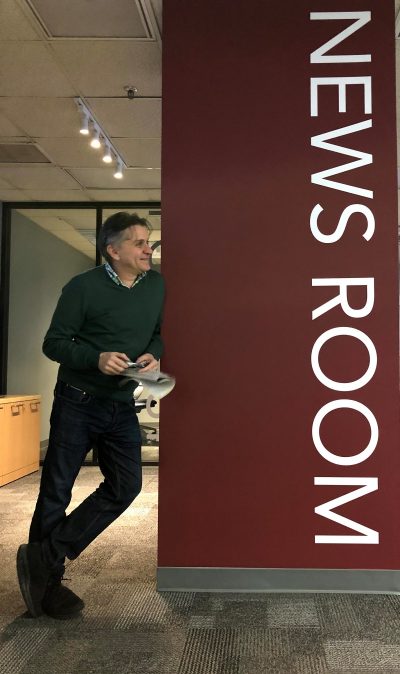
From 1989 till 2000 you worked in Vecer daily. It was still the “old Yugoslavia” when you started to work. What was different in journalism when you started in 1989 and when you ended the work in Vecer in 2000?
– Vecer, although it was published in the former communist system, had more liberty than other media at that time. When I got my job there the system and the country were falling apart. I was lucky to have had editors who supported a change in the system and the independence of Macedonia. I was young and I didn’t really have an emotional link to the former system, nor did I fear authorities from “above” because I did not know them personally. So, quickly my articles were on the front page and from the 12th January 1991 I started writing my column “Sakam da kazam” (I Want to Say) which was published every Saturday. In fact, the column which marked my career is a witness of the historical twist of Macedonia. I left Vecer in 2000 because it was still property of the state, for a short time I was even the Editor in Chief, I wasn’t under pressure, but I didn’t see any growth potential.
How you would describe the difference of the daily Vecer and Vest?
– Both Vecer and Vest were popular newspapers. In fact, Vest was sort of better, upgraded Vecer, with bolder approach, more shocking, a newspaper that surprises, that breaks barriers, fighting against the modern day double standards and hypocrisy, much more liberal than other newspapers, simply put, Vest was a newspaper with no boundaries. However, I learned the principles of journalism and the skill of writing bold titles from Vecer and my first editors Zlatko Blayer and Aleksandar Ivanovski, and I am forever grateful to them for all my professional achievements.
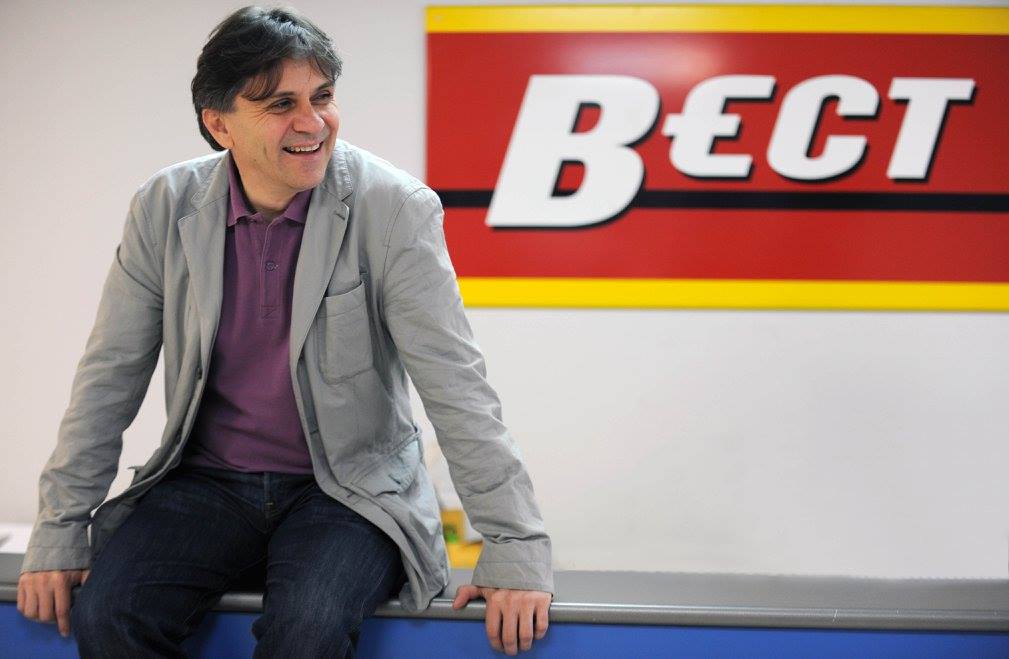
Did politicians try to influence your work, especially in the time when you worked for Vest? If yes, how you reacted?
– Politicians will always like to have influence. In fact, the relationship between journalists and politicians is a two-way street. They need you for publicity, you need them as a source. Actually, in Vest I didn’t have any political pressure while the owner of the newspaper was “Fershped” and later the German corporation WAZ. But in 2012, when the newspaper was sold to the local businessman Orce Kamcev, who had business relations with the government of Nikola Gruevski, the pressure was rising by the minute and at the end they became very brutal. As I mentioned earlier, every day in the newsroom we thought about not what to unveil, but rather how to hide what we had already unveiled. To put it on page 6 in the lower left corner, to send the front page after the printing deadline so the printing facility wouldn’t have time to stop etc. We became experts at self-censorship and yet we were not giving up our determination to inform the public correctly. Our final goal was to get out of that madness with a clean reputation, regardless of how long that madness could have lasted. We fought hard in order not to put a stain on journalism and not to put a stain on ourselves as professional journalists.
Please walk us through a typical workday. How do you manage your time today?
– There is no typical workday for a journalist. Sometimes you are overwhelmed with work, sometimes you have a lazy day. We meet at the newsroom around 10 o’clock in the morning, we contact our local correspondents, we analyze the visits on the website and the engagement on social media… This is a digital newsroom. Working hours don’t end with a deadline, when you send in the last pages to the printing facilities, but we have to write an article and publish it at any hour of the day.
How you see the media situation in your country today?
– Not good. A devasted public service, too many private television companies struggling to survive on the media market with soap operas and reality shows along with hundreds of “copy-paste one-man-show” web portals that are founded and perish with each election cycle.
And political situation in North Macedonia in the past 20 years?
– As the country normalized relations with Greece and became a member of NATO, I am convinced that we finally have a chance to move forward.
And worldwide? Media and political situation today?
– Our mutual enemy are not only the fake news, but also the news from irrelevant news sources. In addition to the lazy, not fact-checked, copy-paste journalism. There are readers who are not media literate. But, how do we educate them and teach them to read with caution and to learn how to recognize fake from real news when even the journalists writing the news are illiterate?
How you see the future of media? Especially print media.
– I don’t think there is future for daily newspapers. However, there’s still a chance for magazines, reviews, special editions, specialized newspapers… You can’t make someone concentrate on important interviews, in- depth cover stories, extensive reportages over the phone. At least for me, I still get excited from the smell of a newspaper and print and really appreciate a neatly done article with sophisticated graphic design and quality photos.
Finally, as press freedom and democracy are very important in your life, can you please give some advice for younger journalists?
– If you are willing to compromise with the truth, don’t become a journalist.
